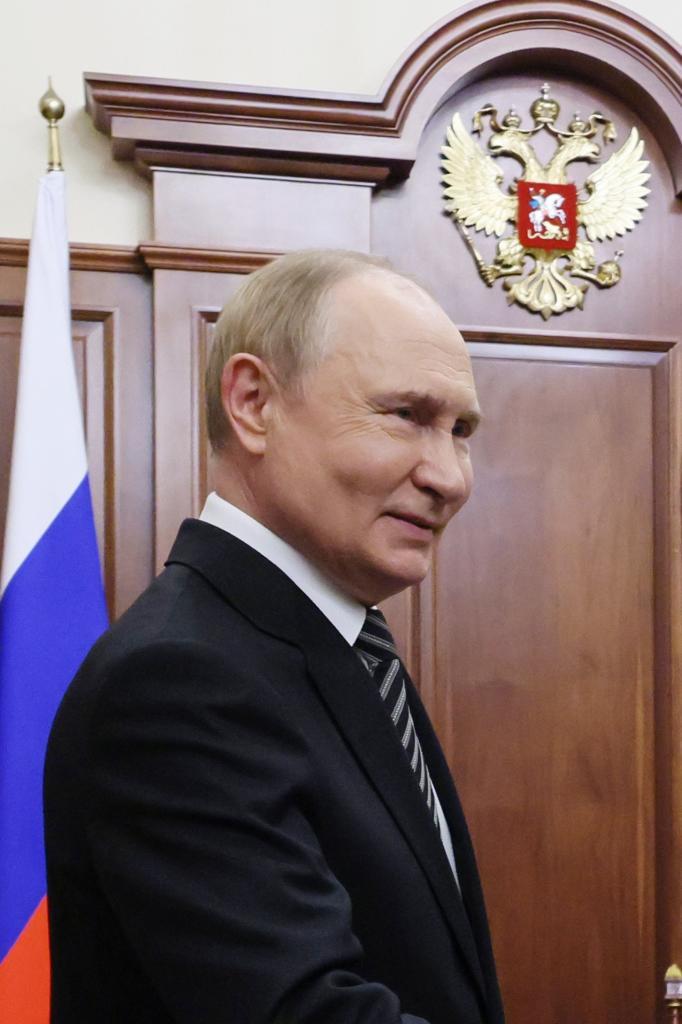Since the negotiating process began last February, there has only been one place where progress has been made, a place where ending the war is possible, a place where Vladimir Putin wants peace. That place is the blonde head of President Donald Trump. But outside of that realm, in the real world, not a single point is known where Ukraine or, especially, Russia, can reach any kind of consensus.
In fact, in this process, there is still no such thing as the ZOPA (zone of possible agreement), a fundamental concept in negotiation: it is the space where the interests of both parties coincide and, therefore, where a mutually acceptable agreement can be reached. For a regime as refractory to the truth as the Russian one, we must recognize that Putin's maximalist demands remain the same as in 2022 and are just as unattainable as they were then. So, what are we witnessing? A theater to not upset Trump. These are the acts of the farce:
Donald Trump, obsessed with winning the Nobel Prize, has been dreaming since February of facilitating a meeting between Volodymyr Zelensky and Vladimir Putin, but there is a fundamental impediment: the Russian autocrat has been not only questioning Zelensky's legitimacy as the Ukrainian leader for years but also portraying him as a drug addict, clown, and Nazi every day since February 2022. How can he now sit down (and legitimize him) with this president whom he tried to assassinate several times in the early stages of the invasion?
Every time this possibility has been raised, the Russian autocrat has played with Trump by leaving that possibility up in the air. Then, as happened yesterday, his Foreign Minister Sergei Lavrov comes and bursts the bubble by saying that for that meeting to take place, much more progress needs to be made in the negotiations. Or Moscow offers itself as the place for that meeting to happen. Translated: only if Ukraine surrenders will that face-to-face meeting take place to certify the capitulation.
Security guarantees involve offering Ukraine enough deterrent military force so that Russia does not invade it again in the future. But Moscow wants the opposite, non-existent security guarantees, precarious or dependent on itself (which would actually be guarantees of future attack). The so-called "volunteer coalition," promoted by the UK and France, is another theatrical self-deception that we have been witnessing since February. It is very naive to think that the US and Europe, who today refuse to shoot down Russian missiles and drones over Ukraine, will go to war against Russia tomorrow to defend Kiev.
Steve Witkoff, Trump's negotiator, stated (as if it were good news) that Putin was willing to approve a law to guarantee that he would not attack Ukraine again. Yes, in the same Russia where there was a law preventing Putin from running again in 2024. In short: Moscow would not face any pressure to accept something that would prevent it from achieving its war goal: ending Ukraine's sovereignty.
Russia demands recognition not only of the territory it has occupied but also of territory it has been unable to conquer so far, specifically 25% of Donetsk, which would give it the opportunity to claim victory. Putin knows that no Ukrainian leader would survive such a concession, making it a demand destined to fail.
Any negotiation attempt has clashed from the beginning with a phrase repeated by Putin and his acolytes to achieve peace: "Addressing the root causes of the conflict." It means that anyone who wants to sit at the negotiation table must buy into a narrative that includes talking about the "Nazi regime in Kiev," the "persecution of Russian speakers," or "NATO's expansion to the East." This is mythology propagated by Russian propaganda outlets that the Kremlin uses to prolong the war. Addressing these "root causes" includes former socialist bloc countries that embraced NATO as a lifeline to avoid being invaded again renouncing that alliance. Moscow calls it "revising the European security architecture." Something unattainable for Ukraine and the rest of the continent.
This point, which also stems from the demands of 2022, would leave Ukraine vulnerable to a new Russian invasion as soon as it regained economic stability. Shrinking its army is the guarantee of a new invasion.
Putin believes that anyone who rejects the Russian world is actually a Nazi. This belief is rooted in Russia's recent history during World War II and serves as a popular rallying point. In his peace demands, he includes "ending Ukrainian nationalism," which Russian propaganda equates to Hitler's ideology, as well as ending "the persecution of Russian speakers." The issue is that Russian speakers are not persecuted in Ukraine, and Russian is still spoken normally in large parts of the country. What the Ukrainian state did was to remove it as an official language for administration. Could that be reversed? Perhaps, but not under the premise of Nazism.
